Sickness & Health by Masimba Musodza
 When we pulled up outside the large house in Mabelreign, Rudo asked me if I was still nervous.
When we pulled up outside the large house in Mabelreign, Rudo asked me if I was still nervous.
"I've already told you I am not nervous!" I snapped, peevishly.
She laughed, that melodious laughter that always struck at something primaeval deep inside me, the accumulated subliminal memories of courtship rituals etched in my y-chromosome. Only she could do that to me, which is why all this that was happening now- her about to formally introduce me to her Tete (paternal aunt), the first step on the ladder in our society towards getting married-seemed so right.
"Come on, think of Tete Mai Richard as my older sister," Rudo reminded me. "Save the shy, awkward prospective son-in-law act for the fearsome dragon that sired me!"
If I did not get past Tete Mai Richard, there would be no need to fear any dragon. It was rare for a Tete to disapprove of her niece's boyfriend, but such a situation was not unknown. A Tete's approval was often a formality, like the Royal Assent of a constitutional monarch; she would need a really good reason to object, a reason that she could take to Rudo's father. The open catalogue of good reasons included consanguinity, me having another wife already or a criminal record. There was another list, which itemised reasons easy enough for people to claim the moral highground if someone else was using them although they held them to be for valid, for they were politically incorrect; a history of mental illness, epilepsy, physical disability, albinism, little academic or employment achievement, Mozambiquean or Malawian ancestry, a scandal in the family, overt observance of the ancestralist traditional faith and being a Rastafarian.
I am a Rastafarian.
Rudo was under no illusion that the idea of her dating one of us would be received favourably. But she thought that if she stuck her heels in, her family would capitulate. If they did not capitulate, then she would simply move in with me. They would have to choose between the PR disaster a daughter living in sin with a Rastafarian poses or saving face by receiving my roora without a fuss.
"Oh, cummon, every family is like that," Rudo had said. "If it's not that the guy is Rastafarian, it's something else. Goes both ways, your people did not immediately take a shine to me."
"That was because you were dressed like a Rastafarian woman," I had reminded her.
"They were hoping you would bring me back in to the established parameters of respectable society where I found you, you know."
Richard, Tete's oldest son, opened the door for us, greeting first his amainini with a bear-hug, chuckling like a toddler. Then, he took a step back to look at his prospective babamunini and appeared to immediately like what he saw. His outstretched hand and murmured greeting were shy to the point of awkward, but amicable enough.
His parents sat on a couch, attended at their feet by Richard's two younger brothers, Tapiwa and Mark. The boys started to get up from the carpet where they sprawled-most comfortable at that age for when you are watching television-and then froze when they saw me. Not quite what you were expecting, eh, boys? I bowed stiffly and shook hands with them, and then greeted their parents.
Richard joined us on the other couch, updating his amainini on events since their last meeting in a hushed, animated voice, while the rest of the family literally gawked at me. Tete Mai Richard looked a thick-set, formidable sort; a combination of Lucy Kibaki but with elegance, and Stembeni Makawa in that ZBC drama about matrons who ill-treated their maids and Patience Oziokor in her genre role. Baba vaRichard was a balding, inconsequential-looking individual. But if you noticed his shifty eyes, you saw that he could have an outlet for his wife's domineering. Most men in that position did.
Then, mercifully, Richard initiated the makadiis, clapping his hands slowly and addressing Rudo by her clan praise name. Every one joined in.
Rudo leaned forward, wringing her hands nervously. "Tete, this is my friend. His name is Dawit Matogo."
Tete cast me a whithering look as if it had been explained in the introduction that I was the local chairperson of a society for the support of practitioners of bestiality, then turned away and made a clucking noise. She looked at her husband.
"Baba VaRichard, do you hear the news your junior wife brings us?"
Baba VaRichard shifted uncomfortably. When he responded, he addressed the coffee-table at his feet. "I am listening. But you are the Tete."
"Dawit, what kind of a name is that, young man?" Tete demanded.
"It says David on my birth certificate," I explained, "but I say the name as it is written in my Bible."
"Bible? Do you go to church?" she snapped.
"He is a Rastafarian," Rudo said.
"A Rastafarian? So, he smokes dagga, this boyfriend of yours? Is that what you want me to tell your father, that you want to marry a man who smokes dagga?"
"No, Tete. I want you to tell my father that I met a wonderful young man and I would like to be his wife."
Tete shook her head slowly as at the antics of an incurable lunatic. She brought her hands together with a loud clap and pushed her open palms at us, a gesture of resignation. But she was not done yet. "Young man, what do you do for a living?"
"I have my own IT company, Daw-IT Solutions," I replied. "Mostly, we do certification."
She offered me a blank stare, and a smug glow came over me. Try and pretend you have a clue what I am talking about you nasty, uneducated hippo cow!
"That means they guarantee a website is authentic," Richard volunteered. "Take for instance your doily-making business, Mum. Say you decided to sell to Americans and Europeans on the internet.Then, for a fee, his company can guarantee that your website is genuine and customers feel safer when they send you money for your products. In other words, he sells trust. Like an insurance company."
"That is brilliant!" Baba VaRichard declared, beaming at me. "It's nice to see a young man who's doing something different."
"Where are your parents?" Tete ploughed in, before I could reply to the compliment.
"My father is a senior civil servant with the Ministry of Transport, and my mother runs a thriving chicken business on her plot just outside the city."
"Really? You seem to be of such respectable background. So, why all this Rasta business?"
"Mai Richard, a man has the right to choose a religion," Baba vaRichard chided her gently.
"Religion?" she sneered.
"Yes!" Tapiwa joined in. "We studied it at school. Rastafarianism is a religion in the same family as Judaism, Christianity and Islam. They follow a very strict Old Testament culture because they believe they are descended from the Israelites who King Solomon sent with his son who was born of the Queen of Sheba to Africa."
"Well, we do not know that!" Mai Richard said. "All we know is that in some families there are evil spirits swarming that make a boy grow his hair wild and take drugs. Young man, did your friend tell you that we are God-fearing in this family? Her father is an elder of the Pentecostal Church of the Tongues of Fire."
But, of course. As Lenny Henry once noted, Blacks know how to give a church a name. Whites are quite happy with something short like St Anne's or even Dean Street Baptist Church, but for us Blacks it has to be monolithic and imposing. Like the names of bands; Gakamoto Jumbo Stars.
"I don't think the young man said that he wasn't God-fearing," Baba VaRichard intervened. "He goes to a different church, one that we may have never heard of but which he obviously takes seriously. If he wants to marry, surely that means that this church also upholds the same family values as the rest of us?"
"Nonsense!" declared Tete. "It has never happened before in our family, we do not have such in our family!"
"Well, we do now," her husband quipped, shrugging. "The only thing that I find fault with him is that he doesn't drink or eat meat. It would be nice to pass a Sunday afternoon with a bit of roast and a golden brew with my young brother here!"
"You, this is my family's business!" Tete reminded her husband. "Would you accept a Rastafarian for a son-in-law? Who among your brothers would?"
Baba VaRichard spread his hands helplessly. "Well, it isn't a question of acceptance," he began, pedantically. "They are both consenting adults..."
"If they are consenting adults, then why are they going through the channels?" Tete demanded. "They should just get married on their own, and then see what happens when people go against their father's wishes!"
She looked at me. "Young man, I will speak to Rudo's father. But I am not going to be a hypocrite in my own home and say that I am happy to see you. This girl, she comes from a decent, respectable home. We expect better from her. I will tell you now what my brother will say; this will not do at all. Rudo, I am so disappointed."
"Tete, I love him," Rudo murmured.
Tete snorted disdainfully. "So, will you be able to cope with a Rastafarian?"
"I have been attending services...." Rudo began, and shut up as her Tete screwed her face in symbolic agony and clutched her belly.
Tete sighed and shook her head. "Oh, Lainos, where did you go wrong with this one?" she prayed. "Is this what they mean when they say that where everything is good, that is where Satan wants to be?"
Then, she regained her composure, sniffing and sighing. "It was hard to make the dinner, so I don't know if you can eat this. Is this what you want, Rudo, that we have to make special meals for your husband?"
Rudo did not mention that she was a vegan now.
Dinner was a subdued affair. They had sadza, fried greens with onion and tomato and beef stew. Rudo and I had sadza and frozen vegetables heated in a microwave oven. Same course I get all over the country, as if non-Rastafarians all thought that being a vegetarian meant you ate frozen peas, carrots and sweetcorn or they thought if they dumped so bland meal on your plate , you would want to eat meat again.
"Enjoying your meal?"Baba VaRichard enquired, grinning as at a pair of unusual animals at he had just fed on his first day of work at a zoo. "I don't think I could, babamunini. I love my meat! When I see you eating vegetables, I actually feel sorry for you for missing out."
"Actually, vegan meals tend to better prepared than what you did with this, Mum," Richard said. "My friend, Lungi, is a Seventh Day Adventist, and they are vegetarian too. They have this soya meat-substitute that tasted a lot better than some of the stuff we are fed in this house!"
"Well, maybe the Rastafarians should marry the Seventh Day Adventists then!" said Tete. "Would certainly make life for the rest of us easier."
We left just after the meal. I was more than generous with my tips, but Tete received hers with less than cordiality, muttering to herself how sinners try and buy their way in to respectability. "You may have money, young man, but you will find out that there are things that cannot be bought!" she warned darkly. "I am only accepting it out of politeness and the goodness of my Christian heart. But, if I were you, I would think really hard about everything and the best interests of everyone."
Two things I noticed during our visit that stuck in my mind long after I dropped Rudo off outside her gate and drove back to my apartment on Eighth Avenue. First was that she had become less and less confrontational towards her aunt, as if the fastidious old cow had eroded her defiance in one evening. I did not have to wonder what it meant; this wasn't the first time I had a girlfriend prepared to stand up to an anti-Rastafarian society only to find that she couldn't. I would not call her weak, Tete was only one of many hurdles to deal with in a long, gruelling marathon that made up a Rastafarian's life.
But my thoughts did dwell long and hard on the body language play between Rudo and her uncle. His conduct had been avuncular enough, even the chiramu kept well within the boundaries of decency. But, I couldn't help noticing how quickly she had withdrawn her hand when he had passed her the salt and let his hairy paw linger on it. The second time, they had brushed past each other as she left the kitchen and Baba VaRichard was entering. Rudo had recoiled from contact with him.
It was probably nothing. Sometimes men got frisky with their nieces from their wives' side. Sometimes they did more than that. If the niece was underage when they did more than that, it was called rape. But, mostly, all they did was cope a feel. The thought of that hen-pecked old man lurking in the passage for a chance to grab one of Rudo's breasts made me giggle with male empathy.
She told me over lunch, at the new vegetarian restaraunt on Inez Terrace. "My father will see you this Saturday," she said. "But he wants to see the results of your last Aids test."
"He wants to see what?!" I spluttered, loud enough for the patrons at the next table to turn their heads.
They glanced away quickly, under Rudo's reproving glare. She turned back to me. "But it has to be no older than two weeks."
"Did you tell him that you and I haven't..?"
"Yes, why do you think he's asking for it?" she replied, flippantly.
I understood perfectly. "Your father is so sure that I am HIV+," I said, absently. "He has never met me, and he is sure I have Aids."
"Tete Mai Richard put him up to it," said Rudo.
Her purse began to vibrate on the table before we heard the muffled sounds of Oliver Mtukudzi's Perekedza mwana, her current ringtone. Rudo reached in to the bag and obtained her phone. She made a face at it, then placed the handset to the side of her head.
"Hi, Tete! Where are you...."
Her voice faded in to the periphery of my awareness. I was thinking about the possibility that I was HIV+, that dreaded disease that only happened to "them". In the West, "them" were homosexuals, Black people and immigrants from the Third World. In a country like Zimbabwe, "them" were prostitutes (always just the prostitutes, never their clients), juvenile delinquents and musicians. Rastafarians and musicians fell in to the category of juvenile delinquents, the sort of people kids were warned against at Sunday School.
An Aids test would show me to be what they were trying to show Rudo I was. It would give them the moral authority to withhold the family's sanction to this marriage. You could argue successfully that a Rastafarian was a bona fide human being same as the next, just a little more hirsute, and you could not really call a belief in the divinity of an African monarch insane in a country where Government ministers had conducted rituals at the behest of an illiterate witchdoctor in a bid to bring diesel out of a rock. But Aids was death, and you could not argue with death. No siree, not with red lips, swelling behind the ears, prominent ribcage and a concave belly and the care-fatigue of a dozen relatives.
"She's coming here," said Rudo, snapping me back to the present.
"Hm?" I enquired.
"Tete Mai Richard," said Rudo. "She is on her way."
"Good," I said. "I will show her what a vegetarian meal is!"
I looked up, and there she was at the entrance, looking this way and that. She wore a large floral-print dress. A waiter approached, but she had spotted us and she pushed past him towards our table.
"Hello, children!" she greeted us, pulling up a chair. She planted herself in it, leaning back with aplomb. "Those stairs!"
"You should have taken the hoist!" I said.
"I thought since it was just one floor, I did not have to bother," she said.
I motioned to the waiter hovering expectantly. "What will you have, Tete?"
"Just a cold drink for me," she replied. "I would rather a chicken, but they don't do those here, do they?"
"A large cold mango juice, please!" I told the waiter.
Tete waited for her drink, and sipped it once before bringing up the matter at hand. "Did your friend tell you what her father requires of you?"
The exultation was unmistakeable in her tone. "I was under the impression that an HIV test was personal," I said.
She snorted. "Only those who have something to hide speak like that!"
"Would you have a test, then?" I asked her.
"Me?" Her squeak of outrage distracted the other patrons temporarily.
"Why not?" I pressed. "Unless, of course, you have something to hide."
"Do you hear what your friend is saying?" she appealed to Rudo. "What exactly is he insinuating?"
"Yeah," said Rudo, to my amazement. "What are you insinuating, Dawit?"
"I'm insinuating nothing," I said. "I'm just asking if you would go for an Aids test."
"I don't need to, young man!" said Tete. "I am a married woman."
"Of course," I muttered.
She glared at me. "Why should you be afraid of an Aids test?"
I glared at her back.
"Because there is enough stigma attached to me already."
Why was I bothering. This stupid cow who certainly remembered the SLEGS BLANKES/WHITES ONLY signs that used to be posted outside establishments such as this one did not have any idea what it was like to be told that you could not work or go to college unless you cut your hair and beard, what it was like to sit by yourself even if the bus is full, to be stopped and searched by police on every street.
An Aids test was being touted by the NGOs and other activists as the next big thing. You could even get the results the same day.
But what of it? You step in to one of those places and you know you don't need to take the test. They take one look at you, and they have already decided that you are as sick as a dog. Rastafarian-sex with white tourists and local prostitutes-or just naturally susceptible to the virus. They shuffle uncomfortably.
Like the time I tried to give blood, and the woman piled the questions and excuses until someone in the queue behind me shouted, "Hey you racist cow, why don't you just tell him straight that you don't want his blood because he is a Rastafarian? The queue is growing while you play games with him."
I had turned round and found myself facing a skinny, keen-eyed individual, the sort that could be counted on to lay it straight to the management on behalf of a disgruntled but timid workforce.
"My cousin died because the only donor-match backed out when he found out that my cousin was a Rastafarian. He said he would give him his kidney if he renounced his beliefs and became a member of one of these Clap-Hands churches where the pastor preaches in English to a Black congregation and someone has to interpret for him."
The nurse's expression had remained defiant, guilt without remorse or shame. What was there to be ashamed about in her attitude towards Rastafarians? She wasn't the only one who held such.
As I stepped out of the caravan, I braved a gauntlet of stares and nudges. There was sympathy in those stares, but there was also accusation and condemnation in them. How dare I come in there and expect to be treated like a human being when I had gone against all that was ordained to be wholesome and human?
Tete would never understand any of this. As far as she was concerned, I already had Aids and deserved it too.
"If I am positive....." I looked at Rudo, and she looked away.
The question, unasked, had been answered succintly by that gentle tilt of the head. If I did have Aids, then it was over between us.
"I will take the test," I said.
-How many sexual partners would you say you have had in the last five years?
-None.
-None? What kind of a Rastafarian are you?
-The kind that has had no sexual partners in the last five years.
-But I thought you Rastas like to have lots of girls.
-Is that what they tell you at medical school?
-No, but I just thought....
-Well, you thought wrong. The Jonas Brothers have nothing on me!
-Is that right? But I thought Rastas....
-With all due respect, ma'am, I think you ought to keep the personal questions relevant to the procedure!
We did not have to wait that long for the results, but Tete Mai Richard fidgeted and muttered to herself. The thought of the likelihood someone recognising her at the Same Day Aids Testing Centre was driving her mad. Had it occurred to her that any such person would be as anxious to remain incognito as she was, poor Tete would have calmed down somewhat. But, as it were, she believed the whole world watched her and not the other way round. Though, of course, if she did see anyone she knew here, she was certainly not going to be too busy worried about her being seen here to ignore the scandal.
Our numbers-Rudo and myself-were announced and we stepped in to the doctor's consulting room. My heart lurched as we took seats. The doctor looked sombre.
"Sir," she began. "Our test concludes that you do not have the Human Immunodeficiency Virus which causes Aids."
Relief surged and a sense of being vindicated, but the good doctor was not finished.
"Madam, you do understand that the results of your test remain confidential.."
"Um, yes..." Rudo's brow creased, she looked at me for help.
"Perhaps you would care to be alone for this," said the doctor.
I stepped out before either Rudo or the doctor could say a word. In the waiting room, Tete got up and stood in my way. "What is it?" she whispered.
"I think your niece has Aids," I said. "And I think your husband gave it to her."
You could have knocked her down with a feather. As I pushed past her, she slumped back in to her chair. Her massive chest heaved like machinery coming to life, before her vocal chords activated.
I could still hear her shrieks long after I had left the building.
In Sickness and in Health was written by Masimba Musodza and is condensed from a forth-coming novel.
Copyright Masimba Musodza 2009.

I was born in 1976, as independence and all it offered to an erstwhile disenfranchised Black majority dawned on the country now known as Zimbabwe. I was educated at Avondale Primary School, Harare, and St Mary Magdalene's High School in Nyanga. Then I went to Film School, majoring in Screenwriting and Directing. So, while I am only just emerging in the literary world, I have been a writer for film and television for a while now.
I am the author of The Man who turned into a Rastafarian, an anthology of short-stories. A novel is due to published before the end of the year. I am now working on a ChiShona language novel that I think will push and redefine the boundaries of the genre. I also write essays of interest to adherents of the Rastafarian Faith.


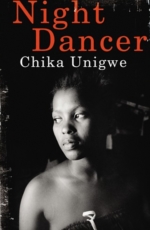

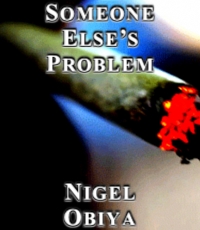

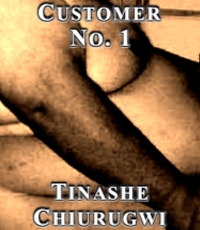
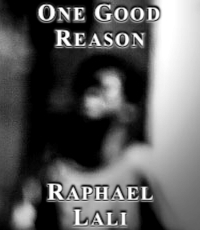
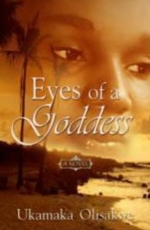

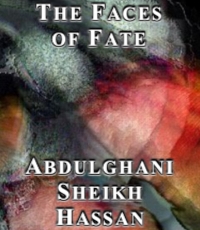

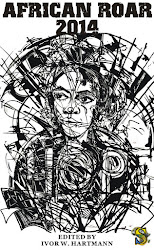
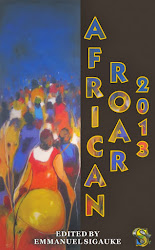
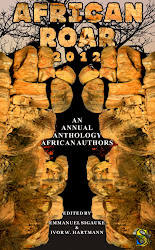

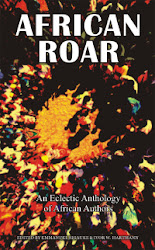

8 comments:
Interesting theme: the trip-to-auntie stuff. Other concerns--AIDS, Rastafarian religion, etc-- set the stage for the breath of a novel. In a short story, some of the plot summary bits would needs to be eliminated altogether with further condensing.
I like how you are spearheading the Rasta-rights/place fiction as well.
I like the way the story develops. I was going to say the ending is too hanging then I read the note that the story has been condensed. Great use of dialogue
Thanks Emmanuel. The bit about the AIDS test was inspired by the one time I wanted to give blood. It took me a while to work out that the woman didn't want my blood because I was a Rastafarian.
And yes, I have been introduced to a few Tetes in my time but I am yet to meet the one that takes a liking to me.
But what I hope to dwell on in the novel is the prevalent perception that Aids is something that can only happen to "them". Them being anyone that you don't like or look down on.
Thanks, Anonymous
Great story as always Masimba, I had to laugh at your aside about church names. Though you dealt with some sensitive topics, they were nicely gloved in a wry humour and of course your hallmark short story end-twist. I think the novel will be even better, more room for you to stretch out and for the reader to really get know the characters.
Hi Masimba
As always, you have a really deft hand with humour (multiple coffee-through-the-nose snorts on my part) and you draw your characters well. I enjoyed this story. I loved the twist on the "meeting-the-parents" angle...and I *really* want to know how your central character and Rudo patch up their relationship, or IF they do...guess I'll have to buy the novel when it comes out!
I would avoid using replacements for "said" every time a character speaks. It's a useful shorthand, and in some situations (such as an interruption) it can be the fastest way to do it, but it can also become a distraction. More importantly, many editors see it as a lack of experience. It's part of the "tell" vs. "show" syndrome (which you normally manage to avoid quite well).
Also (this is a grammar-Nazi niggle) AIDS is an acronym, and should be in capitals. I think a small part of the horror of the disease is that it becomes so commonplace that people think it's a word. You obviously don't, since you got it right in the comments...(on the other hand I can see that having a WORD IN CAPITALS all over your page can make it look untidy).
I have a question : Is leaving tips for a meal (not in a restaurant) traditional or custom? I'm just interested, actually, because it's not something we (white SA) ever do.
Colin, thanks for your comments. "Tipping" is a Zimbabwean custom, you give people money "for a drink" upon parting. The idea is to demonstrate the Zimbabwean virtue of generosity. It is nothing like the Nigerian custom of "dashing". Remember how appalled King Lobengula's indunas were when they were shown Queen Victoria's treasury but they were not given a single diamond or ingot-which would have been the case if they had been hosting. They took that as indication that Victoria was a very mean woman, therefore ill-fitting her station. (How different the kings of yore were from the kleptocratic riff-raff that now runs Africa)
Thanks for pointing out that AIDS acronym/word thing. You are right, we have turned it in to a word and it is no longer as scary.
Ivor
In the original routine, Lenny Henry compares St Thomas' to The Pentecostal Church of God in Prophecy but as you know, us Zimbas have come up with some really long ones which are, mercifully, eventually known by an acronym. But it got me falling off the couch when Lenny said it
Post a Comment